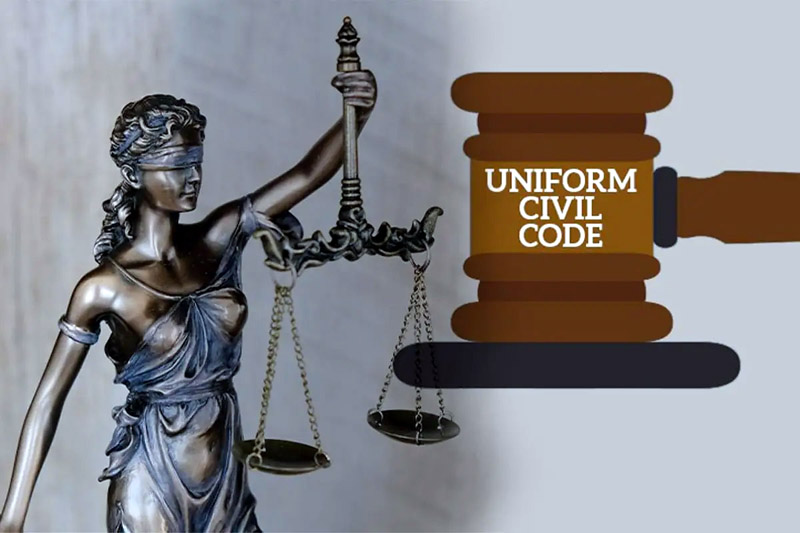Raju Vernekar
While the 22nd Law Commission of India has sought public views about the Uniform Civil Code (UCC), going by different laws governing marriage, divorce, property, inheritance and such other issues, it is imperative that the UCC is brought into implementation as soon as possible.
Article 44 of the Constitution, one of the Directive principles of state policy, advocates the UCC and different courts have expressed similar views from time to time. However, respective religion-based civil codes are still allowed to respect the diversity of India.
A host of acts include: the Hindu Marriage Act 1955, the Hindu Succession Act, 1956 and the Hindu Minority and Guardianship Act 1956 (the act does not apply to the state of Jammu and Kashmir) are covered under the Hindu Code Bill. These acts are applicable to Buddhists, Jains, and Sikhs, Virashaivas, Lingayats, and followers of the Brahmo and Prarthana or Arya Samaj.
Other acts are: the Parsi Marriage and Divorce (Amendment) Act, 1988 (amendment to the Parsi Marriage and Divorce Act, 1936), the Christian Marriage Act of 1872 and the Special Marriage Act, 1954. The Special Marriage Act, 1954 (SMA) are the other acts. The SMA is applicable to entire India and extends to intending spouses who are both Indian nationals living abroad.
All these acts prohibit the bigamy (marrying someone else while simultaneously being married to a spouse who is still living) and polygamy (the custom of having more than one wife at the same time). These acts are punishable under sections 494 and 495 of the Indian Penal Code, 1860.
However the bigamy and polygamy are not criminal offences under the Shariat Application Act 1937 ( Muslim Personal Law) (MPL). Besides although section 494 (6) of IPC makes bigamy a criminal offense, section 2 (7) of MPL allows the application of polygamy on Muslims. It is also on the side of the legitimacy of polygamy. In fact the Supreme Court has ruled that a fundamental right to profess Islam does not include the practice of polygamy.
The system of triple talaq (when a husband pronounces three repudiations at once to divorce his wife) has been banned from August 01, 2019 onwards with the passing of the Muslim Women (Protection of Rights on Marriage) Act 2019 on July 30, 2019.
Condition in other states
Similarly the Goa civil code based on the Portuguese Civil Code of 1867 (amended in 1966) does not recognize bigamy or polygamy, including for Muslims, but grants an exception to a Hindu man to marry once again if his wife doesn’t conceive a child by the age of 21 or a male child by the age of 30. The act also ensures that the wife is entitled to half of the “common assets” including those inherited by her husband in the case of a divorce.
Now the Uttarakhand has prepared a draft for UCC and the Assam Government has set up a four-member committee to examine the legislative competence of the state legislature to enact a law to end polygamy.
Some opposition parties have opposed the UCC, but to prevent rising litigations related to marriage, divorce, property and inheritance, the Special Marriage Act, 1954 (SMA) seems to be the best option, since it governs a civil marriage where the state sanctions the marriage rather than the religion. The proposed UCC could be based more or less on the lines of the SMA.


